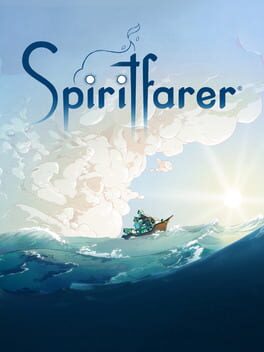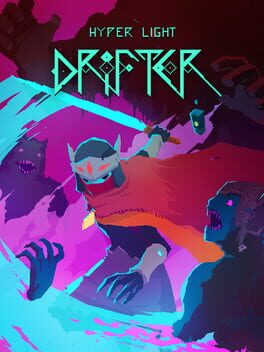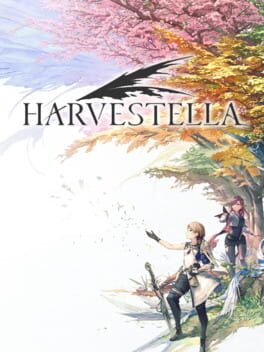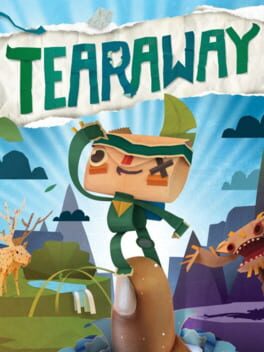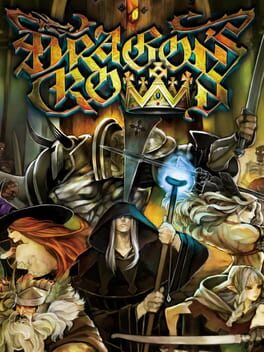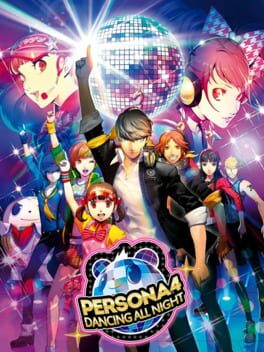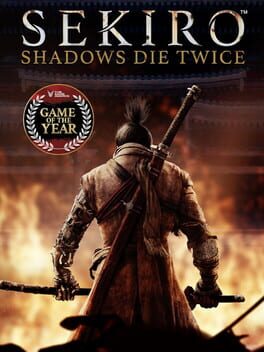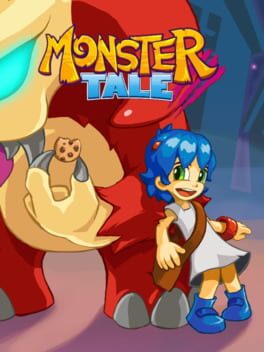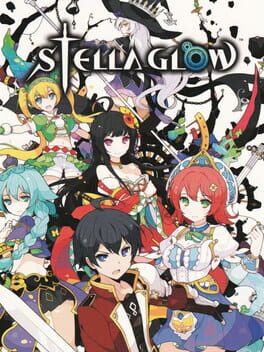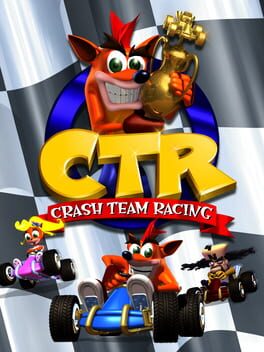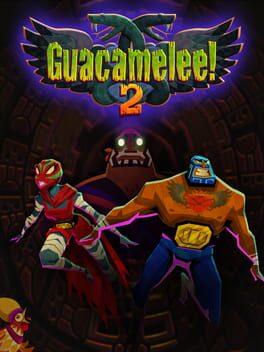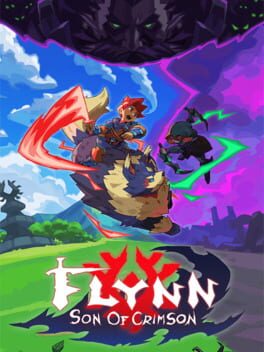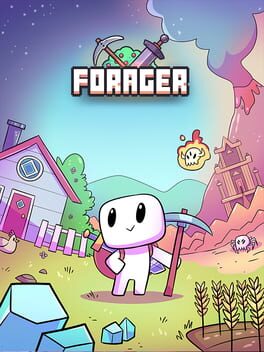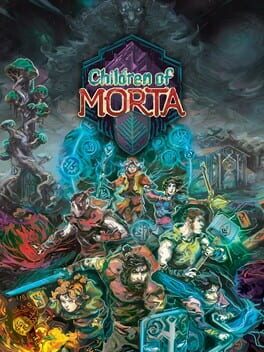notesurfer
BACKER
2020
Spiritfarer is a cozy resource management/base building game. The animations are gorgeous and the music is calming, if a bit banal. The game centers primarily around the characters, all of whom are well-written but forgettably inoffensive. Maintaining good relationships and progressing the character arcs requires numerous resources, which are gathered and processed by completing mediocre minigames. Traveling while balancing these tasks is initially a fun juggling act, but it's easy to get stuck with grinding for a particular resource or traveling to a distant location without being able to progress other goals. Depending on the level of complexity or difficulty a player is looking for this could be worthwhile, but I found myself hitting too many tedious road bumps.
2016
Hyper Light Drifter is a precision combat, vibe-heavy exploration adventure. The visuals are gorgeous, featuring detailed pixel art splash screens and an evocative, utterly unique setting. A lot of gameplay elements are also communicated through visual design, with mixed success. It's bizarre that so much important information is cryptically inferred without words, but the phrase "your gun is now fully charged" flash on the screen occasionally.
Combat is fast but methodical. Without i-frames or the chain dash, dodging feels stiff and frustrating. The bosses are actually more fun than trash mobs, because the combat requires you to read individual enemy attacks and that's a lot easier to do when the enemy takes up most of the screen. Difficulty is pretty uneven, with sequential challenges rocketing up and plummeting down rapidly.
Checkpoints are often too far apart considering that the entire room state goes back to square one when you die. The game wants you to explore and push at the edges of the map, but you take damage if you try to dodge into an inaccessible area. These issues all add up to a game which feels smugly disrespectful of my time. It is beautiful and the levels are thoughtfully designed - I might still try the sequel, because this feels like a prototype with a lot of potential.
Combat is fast but methodical. Without i-frames or the chain dash, dodging feels stiff and frustrating. The bosses are actually more fun than trash mobs, because the combat requires you to read individual enemy attacks and that's a lot easier to do when the enemy takes up most of the screen. Difficulty is pretty uneven, with sequential challenges rocketing up and plummeting down rapidly.
Checkpoints are often too far apart considering that the entire room state goes back to square one when you die. The game wants you to explore and push at the edges of the map, but you take damage if you try to dodge into an inaccessible area. These issues all add up to a game which feels smugly disrespectful of my time. It is beautiful and the levels are thoughtfully designed - I might still try the sequel, because this feels like a prototype with a lot of potential.
2022
This game is a cumbersome mess. The opening is excruciating, with tons of slow, repetitive animations. The world is rife with invisible walls and dumb plot obstacles. Dialogue often gives the player multiple options that make no difference. Running consumes stamina even when not in combat (imagine always walking everywhere in Harvest Moon). Combat offers no defensive movement options, making every encounter a DPS grind. The story and setting are interesting, but the visuals are awful and frequently stutter. Basically this game is a collection of many of my gaming bugbears, with very little to redeem it.
2013
Unique and charming, with a vibe that evokes Banjo-Kazooie and its many imitators. Tearaway does a great job of showcasing the PS Vita's unique feature set, but there is very little depth to the gameplay itself. I also found many of the touch controls to be frustrating, especially drawing coherent shapes in the paper-cutting minigame. Shoving my finger "through" the screen was a really cool feeling, but I definitely did not enjoy seeing my bored face superimposed in the sky.
2013
Like all the Persona games, Dancing All Night is aesthetically flawless. The music is well-suited to a rhythm game, and the animation of the dancers is incredibly well-done. The controls are excellent, although they do start to fall apart at higher difficulties where complex rhythms really need some kind of visual indicator. I know most people will probably just brute-force memorize where they fall, but that's where the fun runs out for me. Unlockable items can add or remove challenges, and only a handful of the costumes are "anime sexy." The story mode is full of redundant dialogue and regressive social interactions, so I skipped most of it. Overall an excellent rhythm game if you can tune out the "writhing waifu" element.
2012
Persona 4 Golden has some really excellent game design coupled with a deplorable amount of padding and some extremely problematic character interactions. Compared to Persona 3 the plot, setting, and social link writing are all massively improved. Despite that, the "pick up artist" and "summer camp" sequences are fatphobic, homophobic, misogynist, and generally just made me cringe. Combat is appropriately tactical, and the persona-series mechanisms are all quite engaging, but the dungeons are all extremely dull mazes with a few floors too many. Overall the game ends up feeling like a real grind, despite having quite a few genuinely evocative moments.
For all that Dark Souls is touted as "tough but fair" (which it definitely isn't) Sekiro actually lives up to that description, perhaps because it deviates in key ways from the Souls formula. Where Dark Souls focuses on fantasy lore and dreadful exploration, Sekiro emphasizes stealth and high-energy, high-accuracy combat. Although the low-fantasy historical setting doesn't appeal to me, the levels are evocative and intricately designed. Sekiro's razor sharp encounter design repeatedly capitalizes on the emotional rollercoaster from "this is definitely impossible" to "I have achieved the impossible!" In terms of the apparent goals of the work Sekiro might be a perfect game. At the very least, I think it perfectly captures the "ninja warrior" experience while avoiding cumbersome realism or an overpowered protagonist.
2011
Monster Tale is a very creative mashup of a pet training game and metroidvania. The aesthetic elements are excellent, and controls are very tight (with one exception) which makes the platforming and combat very fun. The monster complements the main character's moveset, and training it well requires some strategic thought. This also might be one of the best uses of the dual screens that I've seen on the system.
Unfortunately the dash is extremely unreliable, which made the third boss too frustrating for me to continue. It's a shame because this is a very creative and well-executed title otherwise. I would still highly recommend it to anyone looking for unusual games on the DS.
Unfortunately the dash is extremely unreliable, which made the third boss too frustrating for me to continue. It's a shame because this is a very creative and well-executed title otherwise. I would still highly recommend it to anyone looking for unusual games on the DS.
2015
When I first played Stella Glow it was the highlight of my gaming 2018. Having zero expectations I was pleasantly surprised by a well-written and engrossing tactical RPG with memorable scenarios, plot, and characters. Sadly, it held up poorly to my 2021 replay.
The writing is still exemplary, with a well-developed empathy for the characters. Unfortunately it is also mired in problematic sexual situations which I had a lot more difficulty ignoring on my replay. The overall plot is still extremely well executed, but I had a much harder time engaging with the dialogue this time around. The combat is still challenging and tightly designed, but it suffers from a lot of quality-of-life issues which can render certain elements (e.g. the witch's songs) a bit tedious.
I really can't evaluate this game properly as both of my playthroughs were heavily colored by a dramatic mismatch of expectations vs experience. Still, I would recommend that any fan of story-driven RPGs or Persona style games give this one a try. Just be prepared for excessive anime-isms.
The writing is still exemplary, with a well-developed empathy for the characters. Unfortunately it is also mired in problematic sexual situations which I had a lot more difficulty ignoring on my replay. The overall plot is still extremely well executed, but I had a much harder time engaging with the dialogue this time around. The combat is still challenging and tightly designed, but it suffers from a lot of quality-of-life issues which can render certain elements (e.g. the witch's songs) a bit tedious.
I really can't evaluate this game properly as both of my playthroughs were heavily colored by a dramatic mismatch of expectations vs experience. Still, I would recommend that any fan of story-driven RPGs or Persona style games give this one a try. Just be prepared for excessive anime-isms.
1999
2018
Although I enjoyed and completed the first Guacamelee, I wasn't blown away by it. The sequel has the same gorgeous aesthetic, simplified metroidvania level design, and unhealthy fixation with combos. I'm just not craving "more Guacamelee" any more now than I was when I finished the first one. I understand why these games get a lot of praise, but I guess they aren't for me. Stopped after the introduction of undodgeable attacks where the hookshot ability starts to show its inadequacies.
Excellent visuals and music, but the mediocre story and poorly paced gameplay leave something to be desired. The opening few hours are very slow to get rolling, with a lot of very simple platforming. Once additional skills/magic are unlocked the combat opens up quite a bit and becomes a lot more engaging. Many of the levels are just a bit too long, and although the enemy design is very appropriate they are reused enough that combat can feel like a bit of a grind later in the game. Exploring is fun and the rewards are appropriately satisfying, but I wish obtaining the "secret" items was a bit more challenging, if not harder to find. Although SNES-era platformers are successfully evoked, the design is overall nowhere near as tight as something like Shovel Knight. It's a beautiful homage, but arbitrary design choices hold it back from being a great game.
2019
Forager combines clicker mechanics with a Terraria style build/fight/expand gameplay loop. Controller support is broken, and playing with a mouse is unnecessarily RSI-inducing. I also hit a wall where I wasn't sure what to build next with the resources I had at my disposal. I understand that there's a lot more to come, but a game which relies so heavily on an extremely repetitive loop cannot suffer from stagnation even momentarily without losing my interest.
2019
I should love this game, but it is decidedly middling in every aspect. The pixel art is well-done, but there is random stuttering and awkward transitions throughout. The skill trees include compelling inter-character buffs, but overall progress is very slow and most of the unlockable skills are boring percentage-point increases. Combat ranges from awkward to downright frustrating, and deaths often felt unavoidable. Three of the first four unlockable characters are cumbersome to control, and the one ranged character requires a pretty boring kiting playstyle. The writing is atrocious, and as a result the voice acting feels stilted. There's a little bit of excitement to be had in each of these areas, but overall it was a chore to play.
